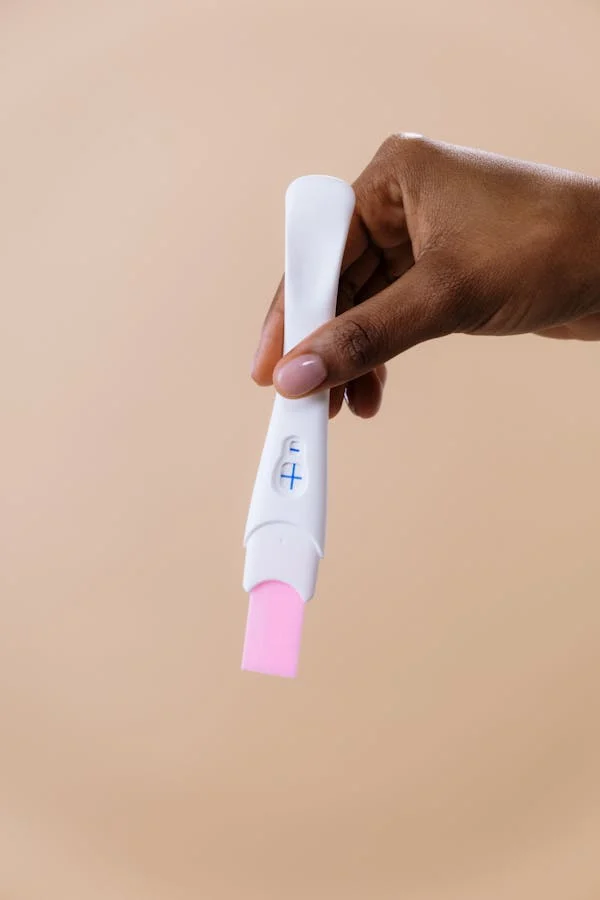Pregnancy is a transformative journey filled with excitement and anticipation, but it can also bring about uncertainty, especially in its early stages. Recognizing the early signs of pregnancy is crucial for expectant mothers to ensure timely medical care and make informed decisions about their health and the baby’s well-being.
While some signs, like a missed period, are widely known, many early indicators can be easily overlooked or mistaken for other issues. Understanding these signs not only helps in confirming pregnancy but also prepares women for the changes ahead.

In this post, we will explore ten common early signs of pregnancy that you shouldn’t ignore, empowering you with the knowledge needed for this beautiful journey ahead.
Understanding Early Signs of Pregnancy:
Understanding the early signs of pregnancy is essential for anyone trying to conceive or who suspects they might be pregnant. These signs are the body’s way of signaling that a significant change is occurring, primarily due to hormonal fluctuations.
Hormones like human chorionic gonadotropin (hCG), progesterone, and estrogen play critical roles in early pregnancy, affecting various bodily systems.
The early symptoms of pregnancy can differ greatly from person to person, and each woman’s experience is different. After becoming pregnant, some women may have symptoms nearly instantly, while others may not experience any discernible changes for a few weeks.
Missed periods, morning sickness, breast pain, exhaustion, and increased urination are some of the typical early symptoms.
It’s important to recognize these symptoms for a number of reasons. Timely medical appointments made possible by early pregnancy detection can help guarantee a safe pregnancy for both the mother and the unborn child.
Women can also better prepare for lifestyle changes, including dietary changes and prenatal care, by being aware of these indicators.
By being aware of the early signs of pregnancy, women can better navigate the emotional and physical changes that come with this new chapter in their lives, ensuring a smoother transition into motherhood.
Sign #1: Missed Period
One of the most well-known and significant indicators of pregnancy is a missed period. For many women, a regular menstrual cycle is a reliable marker of reproductive health. When a woman’s period is late or absent, it often raises concerns about potential pregnancy.
A missed period can occur when the fertilized egg implants itself in the uterine lining, triggering hormonal changes that prevent the menstrual cycle from continuing.
The average menstrual cycle lasts about 28 days, although it can vary between 21 to 35 days for different women. If your period is consistently regular and you suddenly miss it, this is often one of the first early signs of pregnancy to consider.
It’s important to remember, though, that a number of other things, such as stress, changes in weight, hormone imbalances, and specific medical disorders, can also result in a missing period.
A missed menstruation may be an encouraging indicator for women who are actively trying to conceive to get a pregnancy test. They can start their prenatal care journey if the test comes back positive, confirming the suspicion.
However, in order to investigate other potential problems, it is essential to speak with a healthcare professional if the test results are negative and the period does not occur. Women who are aware of this important indicator are better able to identify and react to the likelihood of pregnancy.
Sign #2: Morning Sickness
Another typical but frequently misinterpreted symptom of early pregnancy is morning sickness. Morning sickness can happen at any time of day or night, despite its name, and typically manifests as nausea and vomiting.
Although some women may feel it for a longer period of time, this ailment usually starts around the sixth week of pregnancy and can last until the conclusion of the first trimester.
Although the exact cause of morning sickness is unknown, hormonal changes—specifically, an increase in estrogen and human chorionic gonadotropin (hCG)—are thought to be involved.
Although these hormones are essential for a healthy pregnancy, they may also be a factor in nausea. While morning sickness is often considered an inconvenience, many healthcare providers view it as a sign of a healthy pregnancy, indicating that the body is responding to the hormonal shifts.

However, the severity of morning sickness varies widely; some women may experience mild nausea, while others may struggle with frequent vomiting that can lead to dehydration.
Recognizing morning sickness as one of the early signs of pregnancy is crucial for expectant mothers. It’s essential to manage symptoms effectively to maintain nutrition and hydration. Strategies such as eating small, frequent meals, avoiding strong odors, and staying hydrated can help alleviate discomfort.
If morning sickness becomes severe or persistent, it’s advisable to seek medical advice to ensure the health of both the mother and the developing baby.
Sign #3: Breast Changes
Breast changes are one of the earliest and most noticeable early signs of pregnancy that many women experience. These changes can begin as soon as one to two weeks after conception and are primarily driven by hormonal fluctuations, particularly increases in estrogen and progesterone levels.
Women may notice several physical changes in their breasts, including swelling, tenderness, and sensitivity. The breasts may feel fuller or heavier, and the nipples might become more pronounced.
Darkening of the areolas (the pigmented area around the nipples) is also common, as the body prepares for breastfeeding. Some women might even experience visible veins due to increased blood flow to the breast tissue.
The body is making these adjustments to get ready for the demands of pregnancy and lactation. The breasts’ mammary glands significantly develop throughout pregnancy in preparation for milk production.
Although breast changes are usually a regular aspect of the first trimester of pregnancy, they can also cause pain or discomfort. Women should be aware that these sensations might vary greatly; some people may find them to be minor, while others may feel quite sensitive.
Keeping an eye on these changes can provide important information about a person’s pregnant status. To guarantee comfort and health during this life-changing period, it is advised to speak with a healthcare professional if there are any worries or strange symptoms.
Sign #4: Fatigue
In the early stages of pregnancy, fatigue is a common and frequently debilitating condition for many women. This symptom usually appears in the first few weeks following conception and is caused by a number of things, chiefly hormonal shifts.
Energy levels may be depleted by the substantial changes the body goes through to support the growing fetus. Progesterone, which increases dramatically in the first trimester of pregnancy, is the main hormone that causes increased weariness.
This hormone is essential for sustaining pregnancy, but it can also make you feel sleepy and lethargic. Fatigue is further exacerbated by the body’s increased metabolic rate as it starts to work harder to sustain the growing baby and the mother.
Emotional factors, such as anxiety about pregnancy and the upcoming changes, can also play a role in fatigue. Moreover, many women may not get enough sleep due to discomfort, frequent urination, or heightened anxiety, exacerbating feelings of exhaustion.
Recognizing fatigue as one of the early signs of pregnancy is essential for expectant mothers. While it can be disheartening, it’s crucial to listen to your body during this time. Prioritizing rest, maintaining a balanced diet, and incorporating light exercise can help manage fatigue levels.
If exhaustion becomes severe or debilitating, consulting a healthcare provider is recommended to rule out other potential issues and ensure a healthy pregnancy.
Sign #5: Frequent Urination
Frequent urination is a common symptom that many women experience during the early stages of pregnancy, often beginning around the sixth week after conception. This sign can be surprising and sometimes inconvenient, but it is a natural response to the physiological changes occurring in the body.
One of the primary causes of increased urination in early pregnancy is the rise in hormone levels, particularly human chorionic gonadotropin (hCG) and progesterone. These hormones help support the pregnancy but also impact kidney function, leading to increased blood flow to the kidneys.
As a result, the kidneys produce more urine, prompting more frequent trips to the bathroom.
Additionally, as the uterus expands and grows, it exerts pressure on the bladder, further contributing to the need to urinate more often.
This increased frequency can be particularly noticeable during the night, leading to disrupted sleep patterns, which can compound feelings of fatigue.
While frequent urination is typically one of the early signs of pregnancy, it is essential for women to stay hydrated and maintain healthy fluid intake. If the frequency becomes excessive or is accompanied by pain or discomfort, it is advisable to consult a healthcare provider to rule out potential urinary tract infections or other complications.
Understanding this symptom can help women better navigate the early stages of pregnancy and manage their daily routines effectively.
Sign #6: Mood Swings
Mood swings are a common yet often overlooked symptom during early pregnancy, affecting many women as their bodies undergo significant hormonal changes.
These fluctuations can start as early as the first few weeks after conception and may vary in intensity throughout the first trimester and beyond.

The rapid rise in hormones, especially progesterone and estrogen, is the main cause of mood fluctuations during this period. In addition to being necessary for a healthy pregnancy, these hormones have the ability to affect mood-regulating neurotransmitters in the brain.
As a result, expectant moms may find themselves going through a range of emotions, frequently without any apparent reason, from joy and happiness to fear and impatience. Mood swings can also be caused by the emotional strain of pregnancy.
A perfect storm of emotional turmoil can be created by the expectation of becoming a mother combined with concerns about one’s health, income, and lifestyle adjustments.
Feelings of sorrow or irritation can also be made worse by physical discomfort, nausea, and fatigue from other early pregnancy symptoms.
Recognizing mood swings as one of the early signs of pregnancy is essential for both expectant mothers and their support systems. Understanding that these emotional shifts are a normal part of the pregnancy journey can help women navigate their feelings more effectively.
It’s vital for pregnant individuals to practice self-care, communicate openly with loved ones, and seek support when needed to foster emotional well-being during this transformative time.
Sign #7: Food Cravings or Aversions
Food cravings and aversions are among the intriguing early signs of pregnancy that many women experience. These changes in dietary preferences can begin within the first few weeks after conception and are primarily driven by hormonal shifts, particularly the increase in estrogen and human chorionic gonadotropin (hCG) levels.
Pregnant women may experience sudden cravings for certain foods, such as fruits, salty snacks, or sweets, while also developing aversions to items they used to like. For example, some people might discover that they are unable to tolerate the smell of strong spices, meat, or coffee.
The body’s adaptation processes may be responsible for this increased sensitivity to tastes and odors, which could shield the growing fetus from potentially dangerous substances. Aversions can occasionally make it difficult for women to maintain a balanced diet, even while desires can be enjoyable and stimulating.
To make sure they meet their nutritional needs during this crucial period, pregnant mothers must pay attention to their bodies, make an effort to incorporate healthy choices wherever possible and communicate any problems with a healthcare professional.
Sign #8: Increased Sense of Smell
An increased sense of smell is one of the fascinating early signs of pregnancy that many women report. This heightened olfactory sensitivity often begins in the first trimester and can be attributed to the surge in hormones, particularly estrogen.
As the body prepares for the changes of pregnancy, hormonal fluctuations can enhance the sensitivity of the olfactory receptors in the nose, making scents more pronounced.
For many women, this can result in a greater awareness of everyday odors, such as food, perfumes, cleaning products, or even natural scents like flowers. While some women may enjoy the enriched sensory experience, others may find it overwhelming or even unpleasant.
Strong smells that were once tolerable can become intolerable, leading to nausea or aversions of certain foods.
Understanding that an increased sense of smell is a normal part of early pregnancy can help women navigate these changes more comfortably. It’s important to be mindful of personal preferences and to communicate any discomfort with partners or family members, allowing for a more supportive environment during this transformative time.
Sign #9: Headaches and Dizziness
Headaches and dizziness are common early signs of pregnancy that many women experience shortly after conception. These symptoms can arise due to a variety of factors, primarily hormonal changes, which impact blood flow and fluid retention in the body.
As pregnancy hormones, particularly progesterone and estrogen, surge, they can cause blood vessels to expand, leading to changes in blood pressure and increased blood flow.
This process can result in headaches, which may manifest as tension headaches or migraines in susceptible individuals. Moreover, fatigue and stress, common in early pregnancy, can exacerbate these headaches.
Dizziness is another symptom linked to the early stages of pregnancy. It can occur due to hormonal fluctuations, decreased blood pressure, or changes in blood sugar levels. Pregnant women may also experience dizziness when standing up too quickly, a result of blood flow changes.
Recognizing headaches and dizziness as part of the early signs of pregnancy is crucial for expectant mothers. Staying hydrated, maintaining balanced nutrition, and resting when needed can help alleviate these symptoms.
If headaches or dizziness become severe or persistent, it’s essential to consult a healthcare provider for further evaluation and guidance.
Sign #10: Changes in Basal Body Temperature
Changes in basal body temperature (BBT) can be an important indicator of the early signs of pregnancy. Basal body temperature refers to the body’s temperature at rest, typically measured first thing in the morning before any activity.
In a typical menstrual cycle, a woman’s BBT fluctuates, rising slightly after ovulation due to increased progesterone levels.
If conception occurs, this elevated temperature can persist, often remaining higher than normal throughout the first trimester. A sustained increase in BBT is a key signal that pregnancy may have taken place, as it indicates that progesterone levels remain elevated to support the developing embryo.
For women tracking their BBT as part of fertility awareness or family planning, a consistent rise that continues beyond the expected menstrual period can be a strong indication of pregnancy. Monitoring these changes can provide valuable insights, allowing for early detection.
However, variations in BBT can occur for various reasons, so it is important to consider other early signs of pregnancy and consult a healthcare provider for confirmation and guidance.
Conclusion:
In conclusion, recognizing the early signs of pregnancy can empower women to take proactive steps toward their health and well-being. From missed periods and morning sickness to changes in basal body temperature and mood swings, these symptoms offer valuable insights into the body’s changes during this transformative time.
If you experience any of these signs, consider taking a pregnancy test and consulting with a healthcare provider for confirmation and guidance on your journey to motherhood. Click to learn more.
FAQs:
- What are the most common early signs of pregnancy?
The most common early signs of pregnancy include missed periods, morning sickness, breast changes, fatigue, frequent urination, mood swings, food cravings or aversions, increased sense of smell, headaches, and changes in basal body temperature. - When do early signs of pregnancy typically start?
Early signs of pregnancy can start as soon as a week after conception, but many women notice them around the time their period is due, usually two weeks after ovulation. - Are early signs of pregnancy the same for every woman?
No, early signs of pregnancy can vary widely among women. Some may experience several symptoms, while others may only notice a few or none at all. - How can I confirm if I am pregnant?
The most reliable way to confirm pregnancy is through a home pregnancy test, which detects the hormone hCG in urine. For further confirmation, consult a healthcare provider for a blood test. - What should I do if I suspect I am pregnant?
If you suspect you are pregnant, take a home pregnancy test and schedule an appointment with a healthcare provider to discuss your symptoms and receive appropriate care and guidance.
